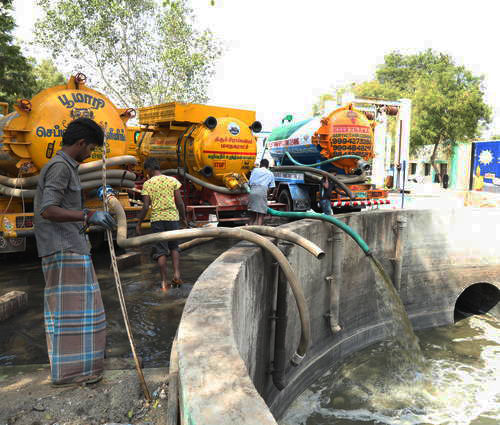Across Tamil Nadu
Enabling Co-treatment

Tamil Nadu has been practicing co-treatment for nearly two decades. Optimum utilisation of unused capacity in STPs through co-treatment is one of the key ways through which the state aims to achieve its FSM targets. There are 63 STPs in the state with a combined capacity of over 1,500 MLD. However, the capacity utilisation is less than 60 per cent in most STPs.
As part of TNUSSP’s implementation support for enabling and improving co-treatment options at STPs, ULBs are being guided to ensure better access to decanting facilities, to improve decanting facilities, and to implement and institutionalise testing protocols.
A framework has been developed to assess infrastructure and performance of existing STPs for co-treatment of fecal sludge (FS). Additionally, designs for FS decanting facilities and online testing for industrial waste have been provided to ULBs.
The following three documents were prepared to help ULB officers decide if FS could be treated at STPs in each city:
- Checklist for Assessment of STPs for Co-treatment of Fecal Sludge
- Checklist for Assessment of Pumping Stations to Use as Decanting Facilities
- Model Terms of Reference: Assessment of Waste Stabilisation Pond (WSP)
The information gathered using these documents are shared with respective ULBs to help initiate co-treatment options.


